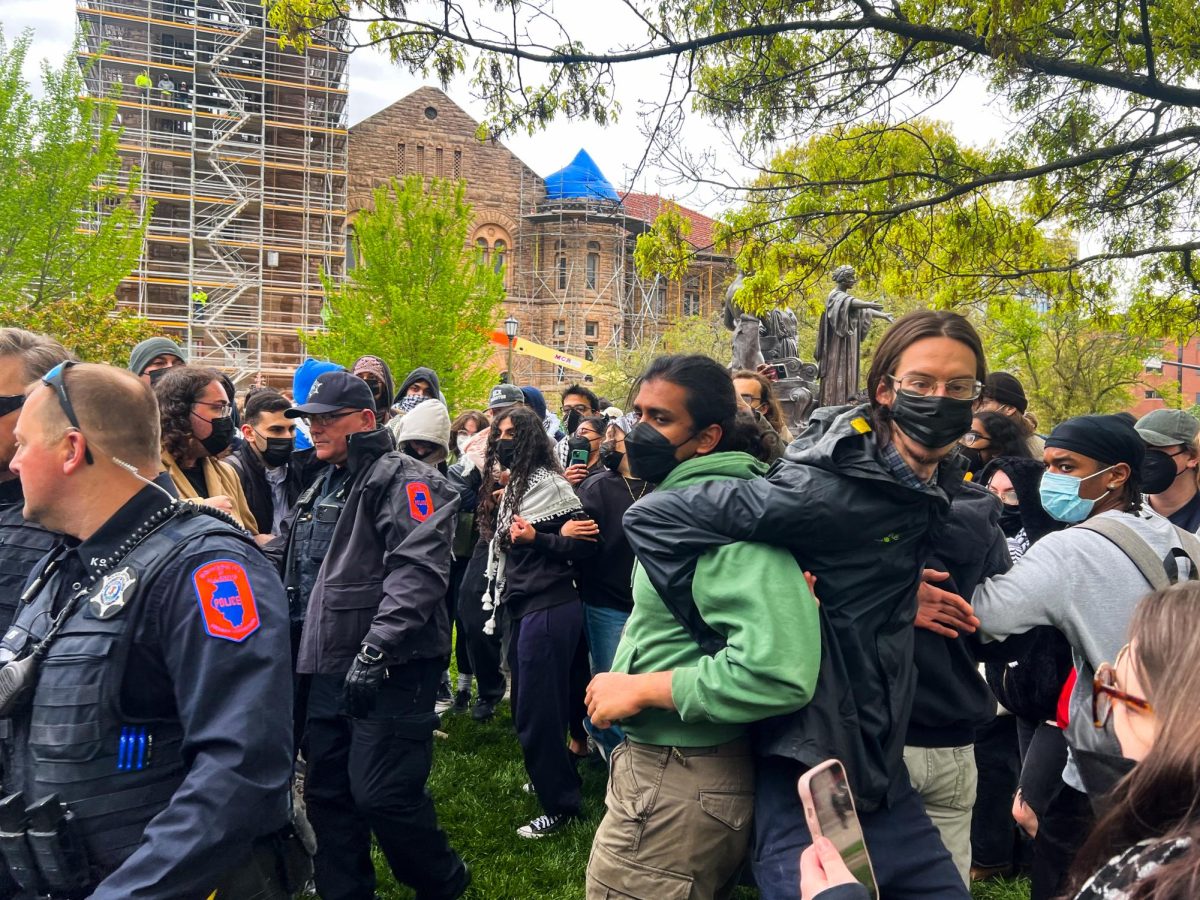Though not yet official, indications are looking bleak for professional hockey fans everywhere.
It’s a story followers of the game have seen before, with the owners and the NHLPA at odds over the breakdown of revenue, with the threat of a lockout looming. If no new collective bargaining agreement is reached by 11:59 p.m. on Saturday, the NHL will endure its second lockout in eight years — its third since 1995.
“Oh yeah, it’s frustrating,” said Illini goalie Jacob Lubben. “The league finally has some good momentum going with tons of new fans for teams like the (Chicago) Blackhawks.”
And the league does have some newfound momentum, earning almost $3.2 billion of revenue last season, which has steadily increased from the $2.2 billion in 2006 after the last lockout. The problems are pretty “widespread”:http://www.youtube.com/watch?v=jzBYSN57nTk&feature=player_embedded, as none of the owners, players or fans would be happy locking out the entire 2012-13 season.
As it sits, the players earn a 57 percent share of the revenue — compared to a 50-50 split from the NBA and a 48-52 split in the NFL after their recent lockouts.
Get The Daily Illini in your inbox!
According to ESPN’s “Scott Burnside”:http://espn.go.com/blog/nhl/post/_/id/19114/time-for-fehr-to-stand-and-deliver, the most recent offer from the NHL has the owners taking a 51-49 share of the revenue over the duration of the new CBA.
“I hope they figure it out,” said Illini head coach Nick Fabbrini. “Not every team is making money, and a lot of teams are losing money. … So if you’re not a competitive team, like Columbus, that hasn’t had a winning team in years, or ever really, they really struggle to fill their building.”
The NHL doesn’t utilize the revenue-sharing system of the NFL, so while the Blackhawks and Toronto Maple Leafs are extremely profitable, bottom feeders can’t make ends meet. With the uneven playing field, recent contracts of the rich have bordered on the insane. Marian Hossa inked a 12-year, $62.8 million deal with the Blackhawks in 2009, Ilya Kovalchuk signed a 17-year, $102 million deal with New Jersey in 2010 and “Chris Pronger”:http://capgeek.com/players/display.php?id=316 was given a seven-year, $34.5 million deal in 2010.
All three contracts are set up in the way that the contracts are front-loaded with a lot of cash in the first few years and then drop off to minimal salaries for the final years of the deal. Ideally for teams, the players will retire when the contract drops off — Pronger will be 41 in 2015 when his salary drops from $4 million to $525,000 — and the salary cap hit is not as harsh.
“All of the other sports figured it out, so hopefully hockey does too,” said sophomore defenseman Josh Baker. “I think everyone is kind of greedy, in my opinion.”
While Baker and Fabbrini are more neutral about who is at fault, Lubben believes the fault falls squarely on the owners.
“It’s frustrating for the owners to try and jeopardize (the season),” the sophomore said. “If you take a look at the new deal, the owners are trying to grab a bunch of new revenue, and they’re really trying to change who gets rewarded for the success of the league.”
Another controversial topic in the negotiations is the salary cap and salary floor that are enforced on each team. The salary cap limits the supremely rich from snatching up and outbidding all the other teams in the free agency arena, but the salary floor is a little more interesting. The “floor” is the minimum amount a franchise must spend on players to put a team on the ice. While a good idea for diversity and making all teams competitive, it cripples small-market teams from making any money at all.
“The players get paid either way,” Fabbrini said. “The owners can have one of the best teams in the league, but if they’re not drawing any fans, they’re losing money. I understand it from both sides. Obviously, the players should get what they’re entitled to.”
With all of these negotiations hinging on money, the real losers here are the fans. Potentially losing their sport for a whole year, especially after not playing the 2004-05 season, could be devastating to a fan base that already isn’t packing stadiums across the country.
Losing more fans would only amplify the current problems the league is experiencing. Maybe both sides will realize that before the Saturday night deadline.
_Stephen can be reached at [email protected]._







